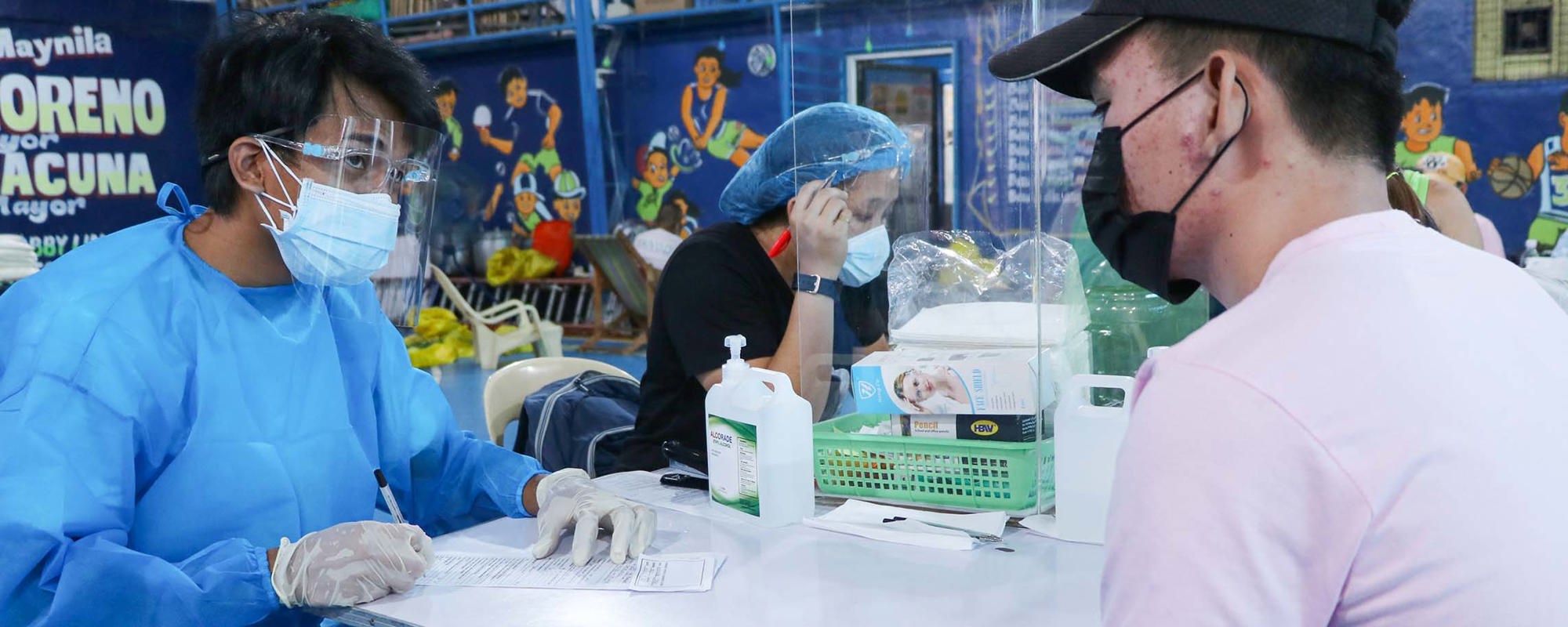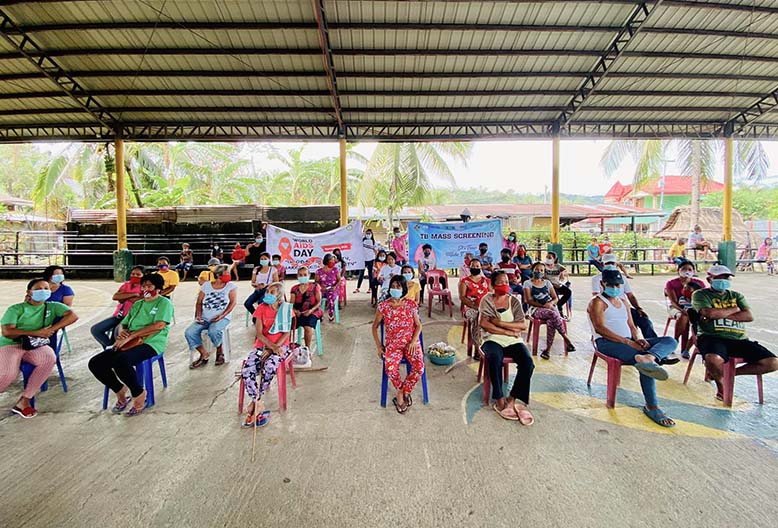

Adapting TB Programs to Face the Challenge of COVID-19: Lessons From the Philippines
When the Philippines first went into COVID-19 lockdown last year, the Department of Health’s National TB Control Program (NTP) knew they had to act fast to ensure that TB patients were not cut off from accessing their lifesaving treatment. Programs for diseases like HIV, TB and malaria were abruptly challenged to find ways to continue providing health services in a country with strict stay-at-home measures and transport restrictions.
“When we went into lockdown, we were suddenly unprepared,” said Arnyl Araneta, Program Manager for the Advancing Client-centered Care and Expanding Sustainable Services for TB (ACCESS TB) Project, a program funded by the Global Fund and implemented through the Philippine Business for Social Progress (PBSP).
COVID-19 has severely impacted the fight against TB around the world. In the Philippines, the National Tuberculosis Control Program recorded a 49% decrease in TB testing, a 37% reduction in TB notification and a 14% reduction in drug-resistant TB (DR-TB) notification in 2020 in comparison to 2019. When TB testing rates decline, this has devastating implications: the fewer people that are found, tested and treated, the more TB cases and deaths there will be, and the higher the risk of drug-resistant TB (DR-TB) spreading worldwide. According to WHO, the Philippines has the fourth highest TB burden in the world.
The Philippines reacted quickly to COVID-19. Between March and May 2020, the NTP, WHO, PBSP ACCESS TB Project, USAID and other partners came together to develop the National TB Adaptive Plan to ensure continued TB prevention, testing, and treatment for their patients. In fact, Philippines was one of the first countries to develop a strong comprehensive TB adaptive plan, which has served for a model for other countries.
COVID-19 sped up the implementation of changes and innovations that had already been under discussion. “With the limited mobility of our health care workers as well as our TB patients during lockdown, the NTP began allowing patients to bring home one month’s equivalent of medicines,” Araneta said. “Our nurses at the DR-TB clinics also do one home visit at least once per month with a patient to check on how they are doing, and to collect sputum specimens for laboratory follow-ups.”

Copyright: PBSP ACCESS TB Project
Part of the challenge of TB is that it requires long and complex treatment. It takes six months of four antibiotics to cure TB. Drug-resistant forms of TB demand an even longer regimen, lasting between nine and 18 months of taking nausea-inducing medication every single day. Loss to follow-up – when patients do not complete their full treatment course – can mean that people are not fully cured, further drug resistance can develop, and TB can be spread.
“Loss to follow-up is one of our major challenges,” explained Araneta. “Prior to COVID-19, DR-TB patients would have needed to report to the facility every day to take their medicines.”
The shift to home-based treatment had a big impact. “Before COVID-19, 16% of our patients would be lost to follow-up before their sixth month on treatment, but in 2020, only 4% were lost to follow-up,” said Araneta. “Now, there has been a paradigm shift and medical staff realized that it is indeed possible to do home-based treatment for DR-TB patients, and that there is a significant improvement in patient adherence and patient treatment outcomes.”
Other elements of the ACCESS TB project were also mobilized to better serve TB patients. In 2017, the Global Fund and PBSP had started an initiative to make services more patient-centered using specimen Transport Riders (STRiders) – motorcycle riders who would transport sputum specimens from health centers to laboratories where they would be tested using GeneXpert diagnostic equipment. “When COVID-19 came, we expanded the task of our STRiders,” said Araneta. “So they are no longer only transporting specimens now, but they are also transporting medicines from the facility going to the patients’ homes.” Even better, they are doing this for both TB and HIV programs.
The NTP Adaptive Plan is working and has helped TB facilities survive the subsequent waves of COVID-19.
“Every time an Enhanced Community Quarantine (lockdown) is implemented, expectedly we always see a decrease in testing and case notification, but the decrease right now is not as significant as last year,” says Araneta. “This means that indeed the mechanisms that we have put in place and the guidance we developed are helping to mitigate the effect of the pandemic.”
The Global Fund is working with the Philippines to expand the mitigation activities set out by the NTP Adaptive Plan through COVID-19 Response Mechanism (C19RM) funding. Part of this funding will help to scale up projects with partners such as the implementation of digital adherence tools, both for drug-susceptible TB and DR-TB patients. These tools include the use of video observed therapy (VOT), and digital pill boxes that remind patients to take their medication and notify community health workers in case they forget. This project is running in two regions, and with C19RM funding, it will be expanded to six regions, covering 100% of the DR-TB clinics.
C19RM funding will also support the expansion of testing strategies and roving mobile clinics, which will visit patients at their homes, collect sputum specimens, and do TB testing right on-site. They are also doing mass TB screening at key locations such as COVID-19 testing sites and vaccination sites to reach as many people as possible.
The patient is always at the forefront of Araneta’s concerns. “There will be X-rays in the vans, ECG machines, and other equipment necessary – especially for DR-TB laboratory follow-ups. Because since patients are home-based, we are finding ways of how to make the services available and closer to the patients’ homes.”







